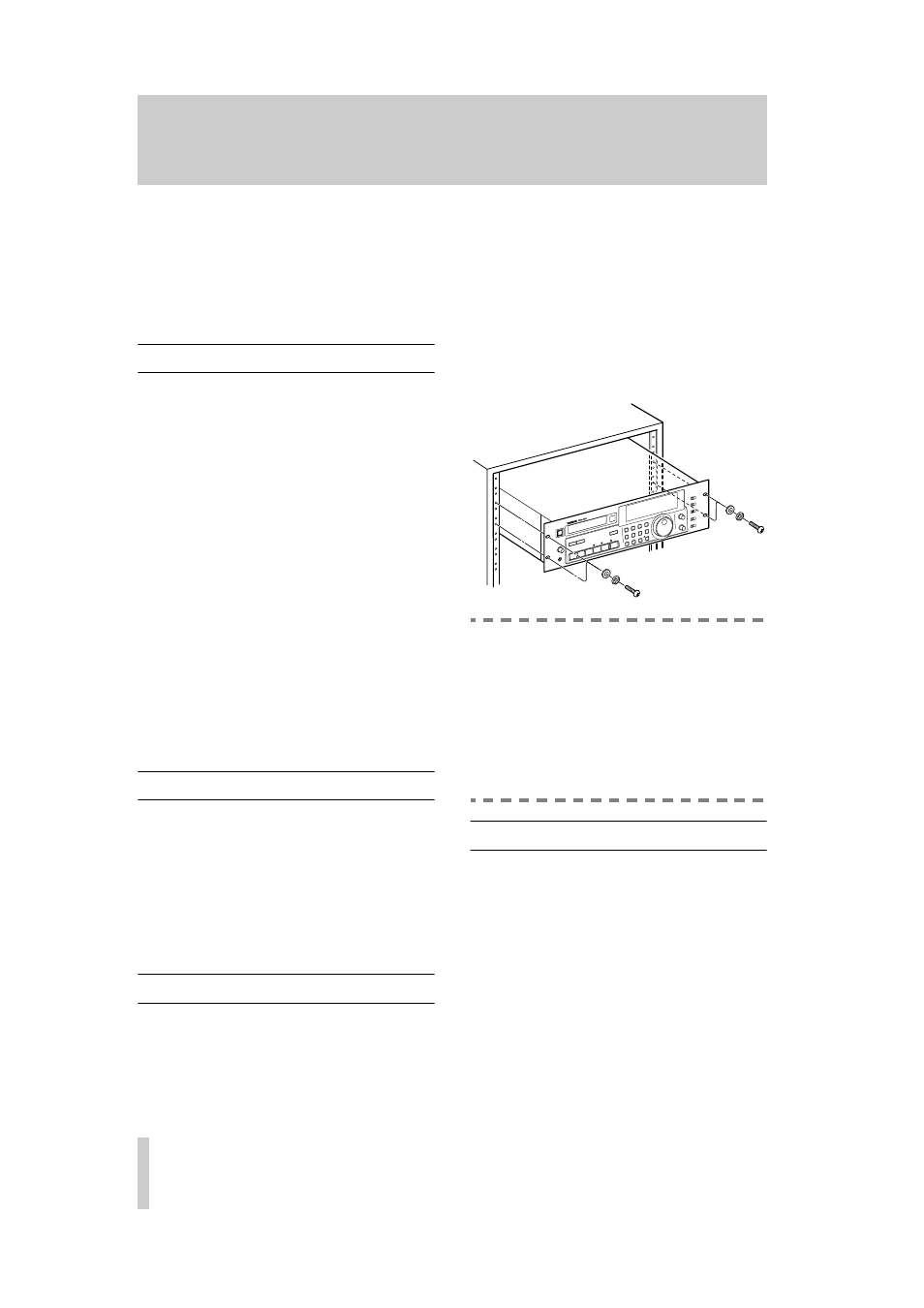1 - introduction to the da-40, 1 features, 2 unpacking and inspection – Teac DA-40 User Manual
Page 6: 3 installation of the tape deck, 4 about dat cassettes

6
TASCAM DA-40
1 - Introduction to the DA-40
The DA-40 Digital Audio Tape (DAT) deck is
referred to throughout this manual as “the tape
deck”.
Please make a note of the different sections of this
manual to assist you in locating the function you
need. The index should also be of use in helping you
to find the correct section of the manual.
1.1 Features
The tape deck provides the following features:
• Superior quality digital-to-analog and analog-to-
digital conversion for maximum sonic fidelity
• Extended long-play option, allowing twice the
standard recording time.
• AES/EBU and SPDIF digital audio input and out-
put formats for full flexibility
• Balanced (+4 dBu) and unbalanced (-10 dBV) ana-
log inputs and outputs
• Comprehensive display options, showing elapsed
time, time remaining on the tape, etc.
• Character entry and editing, allowing tape and pro-
gram titles to be displayed as the tape is played
• Optional wired remote control unit (RC-D45) for
control of all major functions
• Shuttle facilities, allowing precise positioning of
the tape using audio cues
• Location to frame accuracy to location memories
• Comprehensive menu options, allowing many
everyday function settings to be set up and
memorized
1.2 Unpacking and inspection
When you first receive the tape deck, be careful not
to damage it while unpacking it. Save the carton and
packing materials in case it must be transported later.
In addition to the tape deck itself, the carton should
contain a rack mount screw kit .
If any items are missing or appear to have been dam-
aged in transit, contact your TASCAM dealer at
once.
1.3 Installation of the tape deck
The tape deck may be installed in most studio-type
environments, but to maintain optimum performance
and to maximize the life of the tape deck, the envi-
ronment should meet the following specifications:
• the ambient temperature should be between 5˚ C
and 35˚ C (41˚ F to 95˚ F)
• the relative humidity should be between 30% and
60% (non-condensing)
• the tape deck should not be located near any strong
magnetic fields (TV sets or monitors, speakers,
etc.)
The tape deck may be mounted in a standard 19 inch
EIA rack using the supplied rack mounting screws.
Make sure that the rack is strong enough to take the
weight of the tape deck (over 8 kg— 17 lbs.).
WARNING
If the tape deck is mounted in a mobile instal-
lation, and it is moved from a cold location to
a warm one, leave the tape deck turned on
with no tape inserted to allow the internal
temperature to stabilize before the tape deck
is used again (about one or two hours). This
will prevent any possible damage to the
heads, and other parts of the internal mecha-
nism.
1.4 About DAT cassettes
If you have not used a DAT recorder before, here are
a few items of information about DAT cassettes and
their use with the tape deck which you may find
useful:
The cassette shell of a DAT cassette is designed to
prevent the tape from being touched by hand. Never
try to open the tape protection lid and touch the tape.
Fingerprints on the tape may cause wear and damage
to the tape deck heads.
DAT cassettes can only be loaded and unloaded when
the tape deck is switched on. Do not leave cassettes
in the deck when the deck is switched off.